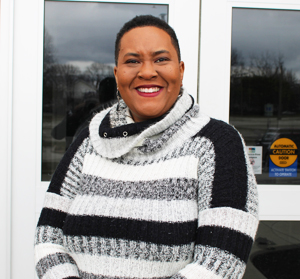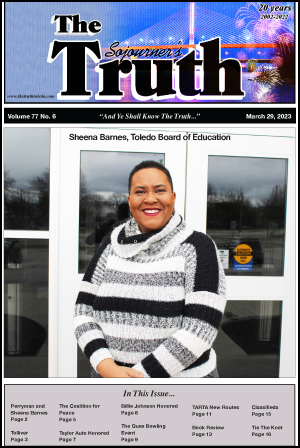
By Rev. Donald L. Perryman, Ph.D.
The Truth Contributor
We want education that teaches us our true history and our role in present-day society. – Anonymous, Black Panther Party Platform
Republican Glenn Youngkin’s upset victory in the 2022 Virginia gubernatorial election provided a template for conservatives to exploit sensitive education issues to mobilize their base, turnout suburban or swing voters, and attract their lukewarm conservative constituents.
After all, voters will surely respond intensely when it concerns their kids. And unfortunately, how schools address diversity has set off a polarizing conservative intrusion into public education and fueled a fierce culture war.
Especially contentious are issues such as the teaching of race, and the banning of books on the history of racial inequality, sexuality, gender, and gender identity.
Local school boards and other supporters of place-based, school-based education are concerned that the battleground of public education could further cause a weakening of support and bolster the growing egress from traditional public schools to private, charter, homeschooling, or virtual/technological education.
I caught up with Sheena Barnes, president of the Toledo Public School Board, to chat about the nation’s culture wars being played out on the battlefield of local public education.
Here is our conversation:

Perryman: This is an interesting time because of the war on schools and classrooms. There’s been a mass exodus of students from TPS since the late 1980s. You’re down almost half from your peak enrollment. How much of that ties in with what somebody has called the “exploitation of vouchers where private schools and others cherry-pick the best and the brightest” academically and athletically from public schools?
Barnes: The percentage would be very high because people don’t make the [relevant] correlations when discussing vouchers. Yes, vouchers help that one student get more access to resources because we don’t have the funding. But people don’t know that we still have to offer special needs support to accommodate all of the students in our district, whether they go to our schools or not. We’re required to provide transportation and support to those students, whether in private or charter schools. So, it hinders what we can really do for our students.
Perryman: Can we attribute implicit bias to the mass departure of students? Or might cultural changes or the nation’s inability to solve its most pressing social problems be a factor?
Barnes: We have to be honest. The systems traditionally known as education and justice are all institutionalized and based on colonization. So, we have to unlearn why we feel kids in certain zip codes are more dangerous than others; the myths that Black and Brown kids don’t have high-quality education; or LGBT kids are a threat to these kids. Those things were put out there to divide us.
And that also plays in the “well, I don’t want my kids to go to this school because they’re thugs.” The others have challenges like this school, but we are highlighted for our challenges versus the school you think is better. Yes, we have to fight for things you don’t have to fight for in another school district like grocery stores or housing. So, you would think, okay, my student would be better over there when we have the same problems regarding student behaviors, drugs and, let’s be honest, violence. But it’s usually highlighted in more inner-city public schools because that’s the narrative that they want to give.
Perryman: The US Department of Justice was in town last week concerning their agreement based upon your disparity in school discipline by race. What are you doing to address the problem?
Barnes: Our DEI Department has been vital in working with the administrative staff to address those concerns that the DOJ did bring up. I want us to ensure this process is ongoing because no one gets it right overnight. I’m hopeful we’re making the right choices, but we need our community to hold us accountable. This is where it’s essential to show up and learn what the school board is doing, so they have the information to ask questions if we get it wrong and support us when we are getting things right. I wasn’t on the board when the agreement happened, but I think we are doing a better job. We are definitely having those honest conversations.
Perryman: We are currently seeing the extreme right-wing attempting to take over school boards for their own purposes. Can you speak to the politicization of school boards?
Barnes: Yes. The right-wingers figured out something many of us should’ve paid attention to. These elected official positions are important, but the school board has the most significant impact. I mean that you’re not only making changes currently but also educating students who will make that impact in the future. So, how you educate them, how you teach the truth or not and how you teach them about the society we live in shapes the next 12 years. It impacts businesses, it affects our communities, but also it impacts future leaders.
The conservatives tapped into that, knowing they could dismantle everything we are trying to do as a country. The way to dismantle that is to make it about “no, these things never happened in history.” These people who are trying to say that are erasing history and communities. That is the most robust way to do it because our kids are learning, absorbing whatever we try to teach them and will teach their kids.
People who are hateful and bigots decided that their world is the right world, and they don’t want to see people of color, LGBTQ people, women’s rights, or any of these things exist anymore. So, they feel the best way to do it is to act like it never existed and then teach children that so when they grow up they won’t question what is gone.
Perryman: Let’s talk specifically about the war in the classroom. Last week, a Tallahassee school principal was fired after complaints over an art lesson. Only three parents out of the school complained that this classical art piece was pornographic. Also, a Florida governor is promoting a “don’t say gay” law. Talk about gender and sexuality and the war over curriculum from your perspective.
Barnes: Yes, so once again, misinformation. LGBTQ people, especially Trans folks, have been here since this land was stolen. Two-spirit people existed even before in the indigenous nations. They have not just come about. They have been in movies and have been authors and political leaders. So, LGBTQ people have been around forever.
What you have is an attack to make sure that when you don’t see them in the books or you don’t see them in the movies, then you label them as something derogatory. So, their humanity is devalued so that you can cause harm, and nobody would make noise.
We saw this during the Civil Rights. We saw this when Japanese Americans were forced into internment camps. When you dehumanize a particular population, people are okay with them being hurt. I think that’s what’s happening, and that is what this governor is doing in Florida. Unfortunately, that’s also what’s coming to Ohio.
I just want to also say that, when we see these very openly, aggressive attacks against the LGBT community, we have to be mindful who are they going to attack next. They started by banning LGBT content, then they took away African American content, and then Asian American content. So, it’s not just one group they’re focusing on, they’re going to attack all of us. That’s why it’s important that we stand together and make sure that public education is protected.
Perryman: Also, in Florida, there was an issue with an African American Advanced Placement class, which was completely watered down. They’re banning books dealing with Black authors, black history, and all of that from the curriculum. How is TPS preventing the negative consequences of actions like that?
Barnes: We are preparing to protect our schools. We know our teachers know what they know and what to do and have those discussions in a very structured, educational way. So, we are willing to support them all the way. We are making moves to ensure that their licenses are protected. We will keep talking, making noise for them, and showing up in the legislative hearings. I testified earlier at the state school board when something like this was coming about. I plan on going up there and testifying to make sure they know in TPS, we’re going to teach the truth.
Perryman: I have a daughter at Western Michigan University who is an international expert on rhetoric, writing and competition. She has written a book, Students’ Right to Their Own Language. There are also attacks today against non-standard English speakers and bilingual education. What is TPS doing to strengthen students seeing their own culture in their schools?
Barnes: Escuela SMART is our academy for bilingual education. We have grown, and I am so proud of Jones Leadership Academy, Waite High School, for creating a safe and welcoming space for Spanish-speaking families to feel included.
We’re seeing the growth in the student numbers coming from Spanish-speaking homes and, of course, throughout our district. So, we are offering Spanish interpreters for the families to be feeling welcome. I am trying to get our board meetings interpreted in Spanish.
It is vital to see yourself in the books, the classroom, and the hallways. Escuela staff does a fantastic job of making sure they do that. They have the day of the child. They have traditional celebrations in which they welcome the community to participate and learn about different cultures in the Hispanic and Latina communities. I try to go to all of them. They have great food, a great event every time, and an amazing staff. I hope that spreads out through the district, and we can learn about each other, not just Black and Brown, but all different cultures, and embrace that.
We have also started Afrocentric schools. They’re embedded in several elementary K-8 and then high schools. In addition, we have implemented a curriculum based on the Afrocentric curriculum. Then we also integrated artwork throughout the hallways.
So, we have a team of principals and teachers and building reps that have started slowly incorporating that Afrocentric curriculum into our classrooms.
Contact Rev. Donald Perryman, PhD, at drdlperryman@enterofhopebaptist.org

